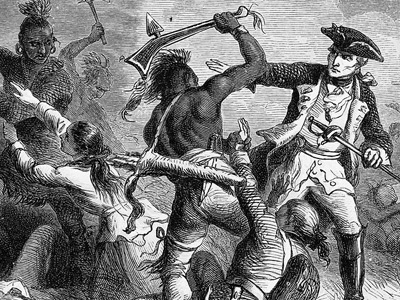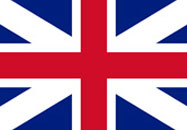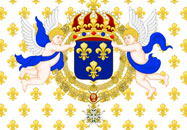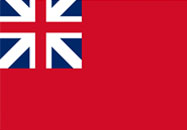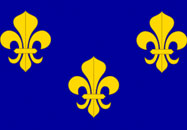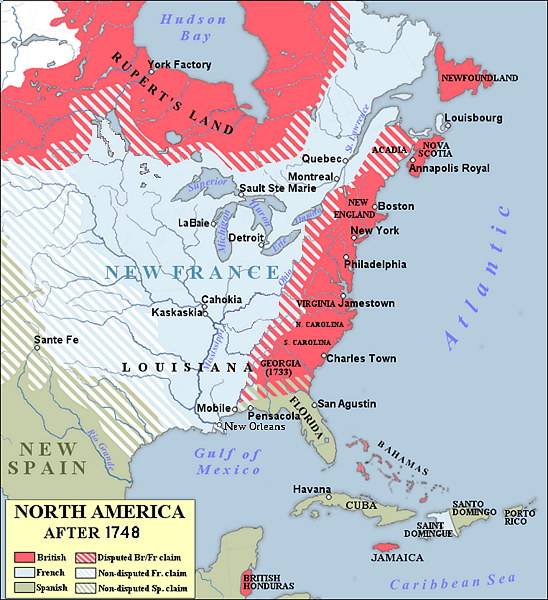French and Indian War (1754–1763)
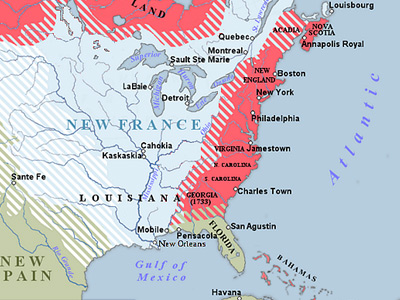
British Conquest 1758–1760
Vaudreuil and Montcalm were minimally resupplied in 1758, as the British blockade of the French coastline limited French shipping. The situation in New France was further exacerbated by a poor harvest in 1757, a difficult winter, and the allegedly corrupt machinations of François Bigot, the intendant of the territory. His schemes to supply the colony inflated prices and were believed by Montcalm to line his pockets and those of his associates. A massive outbreak of smallpox among western tribes led many of them to stay away from trading in 1758. While many parties to the conflict blamed others (the Indians blamed the French for bringing "bad medicine" as well as denying them prizes at Fort William Henry), the disease was probably spread through the crowded conditions at William Henry after the battle. Montcalm focused his meager resources on the defense of the St. Lawrence, with primary defenses at Carillon, Quebec, and Louisbourg, while Vaudreuil argued unsuccessfully for a continuation of the raiding tactics that had worked quite effectively in previous years.
The British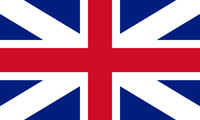 The Kingdom of Great Britain was a sovereign country in Western Europe from 1 May 1707 to the end of 31 December 1800. The state was created by the 1706 Treaty of Union and ratified by the Acts of Union 1707, which united the kingdoms of England (which included Wales) and Scotland to form a single kingdom encompassing the whole island of Great Britain and its outlying islands, with the exception of the Isle of Man and the Channel Islands. failures in North America, combined with other failures in the European theater, led to the fall from power of Newcastle and his principal military advisor, the Duke of Cumberland. Newcastle and Pitt joined in an uneasy coalition in which Pitt dominated the military planning. He embarked on a plan for the 1758 campaign that was largely developed by Loudoun. He had been replaced by Abercrombie as commander in chief after the failures of 1757. Pitt's plan called for three major offensive actions involving large numbers of regular troops, supported by the provincial militias, aimed at capturing the heartlands of New France
The Kingdom of Great Britain was a sovereign country in Western Europe from 1 May 1707 to the end of 31 December 1800. The state was created by the 1706 Treaty of Union and ratified by the Acts of Union 1707, which united the kingdoms of England (which included Wales) and Scotland to form a single kingdom encompassing the whole island of Great Britain and its outlying islands, with the exception of the Isle of Man and the Channel Islands. failures in North America, combined with other failures in the European theater, led to the fall from power of Newcastle and his principal military advisor, the Duke of Cumberland. Newcastle and Pitt joined in an uneasy coalition in which Pitt dominated the military planning. He embarked on a plan for the 1758 campaign that was largely developed by Loudoun. He had been replaced by Abercrombie as commander in chief after the failures of 1757. Pitt's plan called for three major offensive actions involving large numbers of regular troops, supported by the provincial militias, aimed at capturing the heartlands of New France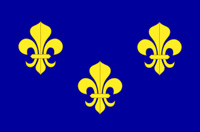 New France was the territory colonized by France in North America, beginning with the exploration of the Gulf of Saint Lawrence by Jacques Cartier in 1534 and ending with the cession of New France to Great Britain and Spain in 1763 under the Treaty of Paris. In the 16th century, the lands were used primarily to draw from the wealth of natural resources such as furs through trade with the various indigenous peoples. In the seventeenth century, successful settlements began in Acadia and in Quebec.. Two of the expeditions were successful, with Fort Duquesne and Louisbourg falling to sizable British forces.
New France was the territory colonized by France in North America, beginning with the exploration of the Gulf of Saint Lawrence by Jacques Cartier in 1534 and ending with the cession of New France to Great Britain and Spain in 1763 under the Treaty of Paris. In the 16th century, the lands were used primarily to draw from the wealth of natural resources such as furs through trade with the various indigenous peoples. In the seventeenth century, successful settlements began in Acadia and in Quebec.. Two of the expeditions were successful, with Fort Duquesne and Louisbourg falling to sizable British forces.

The Victory of Montcalm's Troops at Carillon by Henry Alexander Ogden

The Victory of Montcalm's Troops at Carillon by Henry Alexander Ogden
( Click image to enlarge)
1758
The Forbes Expedition was a British campaign in September–October 1758, with 6,000 troops led by General John Forbes to drive the French out of the contested Ohio Country. After a British advance party on Fort Duquesne was repulsed on September 14, the French withdrew from Fort Duquesne, leaving the British in control of the Ohio River Valley. The great French fortress at Louisbourg in Nova Scotia was captured after a siege.
The third invasion was stopped with the improbable French victory in the Battle of Carillon, in which 3,600 Frenchmen famously and decisively defeated Abercrombie's force of 18,000 regulars, militia and Native American allies outside the fort the French called Carillon and the British called Ticonderoga. Abercrombie saved something from the disaster when he sent John Bradstreet on an expedition that successfully destroyed Fort Frontenac, including caches of supplies destined for New France's western forts and furs destined for Europe. Abercrombie was recalled and replaced by Jeffery Amherst, victor at Louisbourg.
In the aftermath of generally poor French results in most theaters of the Seven Years' War in 1758, France's new foreign minister, the duc de Choiseul, decided to focus on an invasion of Britain, to draw British resources away from North America and the European mainland. The invasion failed both militarily and politically, as Pitt again planned significant campaigns against New France, and sent funds to Britain's ally on the mainland, Prussia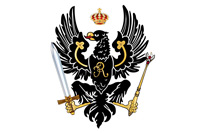 The Kingdom of Prussia was a German kingdom that constituted the state of Prussia between 1701 and 1918. It was the driving force behind the unification of Germany in 1871 and was the leading state of the German Empire until its dissolution in 1918. Although it took its name from the region called Prussia, it was based in the Margraviate of Brandenburg. Its capital was Berlin., and the French Navy failed in the 1759 naval battles at Lagos and Quiberon Bay. In one piece of good fortune, some French supply ships managed to depart France
The Kingdom of Prussia was a German kingdom that constituted the state of Prussia between 1701 and 1918. It was the driving force behind the unification of Germany in 1871 and was the leading state of the German Empire until its dissolution in 1918. Although it took its name from the region called Prussia, it was based in the Margraviate of Brandenburg. Its capital was Berlin., and the French Navy failed in the 1759 naval battles at Lagos and Quiberon Bay. In one piece of good fortune, some French supply ships managed to depart France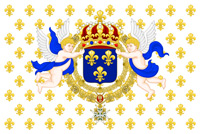 The Kingdom of France is the historiographical name or umbrella term given to various political entities of France in the medieval and early modern period. It was one of the most powerful states in Europe since the High Middle Ages. It was also an early colonial power, with possessions around the world. Colonial conflicts with Great Britain led to the loss of much of its North American holdings by 1763. The Kingdom of France adopted a written constitution in 1791, but the Kingdom was abolished a year later and replaced with the First French Republic., eluding the British blockade of the French coast.
The Kingdom of France is the historiographical name or umbrella term given to various political entities of France in the medieval and early modern period. It was one of the most powerful states in Europe since the High Middle Ages. It was also an early colonial power, with possessions around the world. Colonial conflicts with Great Britain led to the loss of much of its North American holdings by 1763. The Kingdom of France adopted a written constitution in 1791, but the Kingdom was abolished a year later and replaced with the First French Republic., eluding the British blockade of the French coast.
1759–1760
British victories continued in all theaters in the Annus Mirabilis of 1759, when they finally captured Ticonderoga, James Wolfe defeated Montcalm at Quebec (in a battle that claimed the lives of both commanders), and victory at Fort Niagara successfully cut off the French frontier forts further to the west and south. The victory was made complete in 1760 when, despite losing outside Quebec City in the Battle of Sainte-Foy, the British were able to prevent the arrival of French relief ships in the naval Battle of the Restigouche while armies marched on Montreal from three sides.

In September 1760, and before any hostilities erupted, Governor Vaudreuil negotiated from Montreal a capitulation with General Amherst. Amherst granted Vaudreuil's request that any French residents who chose to remain in the colony would be given freedom to continue worshiping in their Roman Catholic tradition, continued ownership of their property, and the right to remain undisturbed in their homes. The British provided medical treatment for the sick and wounded French soldiers and French regular troops were returned to France aboard British ships with an agreement that they were not to serve again in the present war.
HISTORY
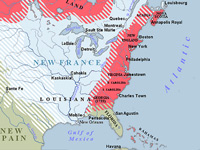
RESOURCES
This article uses material from the Wikipedia article "French and Indian War", which is released under the Creative Commons Attribution-Share-Alike License 3.0.
© Stories Preschool. All Rights Reserved.
